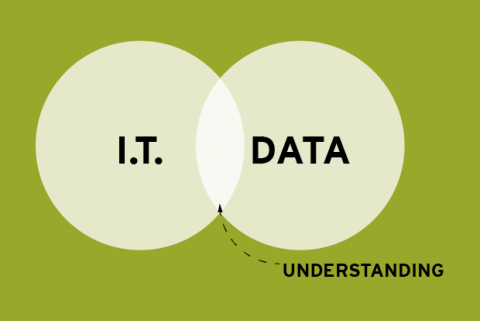An interview with Laurent Bride, CTO of the data integration company Talend.

The Enterprisers Project (TEP): You've observed that most Chief Data Officers (CDOs) don't stay in their posts for very long. What are some of the problems they encounter?
Bride: The Chief Data Officer, at an executive level, is a fairly new role which emerged with the rise of big data and data-driven enterprise. His or her role should be to work with various business leaders in the organization, identify strategic data sources and then create value out of the data available. Data scientists and architects often report to the CDO.
Ultimately, the CDO should help drive industry and business model transformations. This is why you find Chief Data Officers in companies that rely heavily on data to drive, transform and improve their businesses (retail, banks or insurance companies for example).
One of the major challenges faced by CDOs is that they often don't own the systems that acquire, store or process data. These systems are the responsibility of the CIO, which sometimes creates conflict as the CIO and CDO are often both trying to become more strategic to their business partners.
TEP: If the CDO role can be problematic, should it exist at all? To what degree does the role overlap with the CIO, CTO, or CMO?
Bride: It all depends on the individuals holding the CIO, CTO or CMO roles. You can find CIOs or CTOs with strong business acumen who can provide more strategic value to the overall company. In this instance, their work won't stop at simply managing information systems. Many CIOs and CTOs have managed business intelligence, master data management and analytical applications projects for years, working very closely with the CMO, CEO or business unit leaders.
New sources of data (social, sensor) and powerful data engines have emerged and some CIOs have been able to seize these as opportunities to become more strategic. The CIOs who haven't been able to embrace these new opportunities have seen the emergence of a CDO in the strategic role, relegating the CIO role to more tactical tasks.
TEP: You've said that enterprises need to transform into data-driven entities. What are some changes that they need to make?
Bride: CIOs still hold the key to a company's information systems. This is especially true for big companies that have most of their systems on-premises, rather than in the cloud. Enabling a data-driven transformation is not just about making sense of your data silos through new algorithms and visualizations, itís about breaking the data silos and securing, governing, integrating, exposing or mobilizing them to support new ways of doing businesses with partners and consumers. A CDO without the right infrastructure and proper cross-unit collaborations in place wonít be successful.
TEP: Data scientists these days are in a seller's market. Given that reality, is it reasonable to expect a CDO to stay in one place for very long? And when one leaves, how can the organization cope with any half-finished data projects the CDO leaves behind?
Bride: Having an integrated and data service oriented architecture (governance, monetization, quality, MDM and analytical) will help with continuation and evolution of data-driven projects. So CIOs have to engage with CDOs from the beginning. Data scientists could have a dual reporting line to both CDOs and existing business unit leaders. Companies for whom data is critical should certainly bring data governance to the executive level through a CDO so as to turn data into a competitive asset. Tenure in a company is linked to many factors but a CDO with rapid successes and strong ROI will be at risk from a talent war perspective, especially the ones who have a strong understanding of the business and its customers as well as big data technologies.
TEP: Any advice you'd pass along to companies about hiring a CDO?
Bride: Evaluate first if your CMO, CTO or current CIO can do the job. Hire your CDO as a business executive, not a technology position. He or she will work with data scientists and Development people. Make sure to emphasize the need for a collaborative style as well as the innovative and transformational aspects of the role.
Read, "Who are the Chief Digital Officers."
Laurent Bride joined Talend in 2014 as Chief Technical Officer. He came with 17 years of software experience during which he held various individual, management and executive roles in customer support and product development. Most recently, Laurent was CTO at Axway where he was responsible for R&D, Innovation and Product Management. He has also spent more than nine years in the Silicon Valley, working for Business Objects and then SAP. Laurent holds an engineering degree in mathematics and computer science from EISTI.




